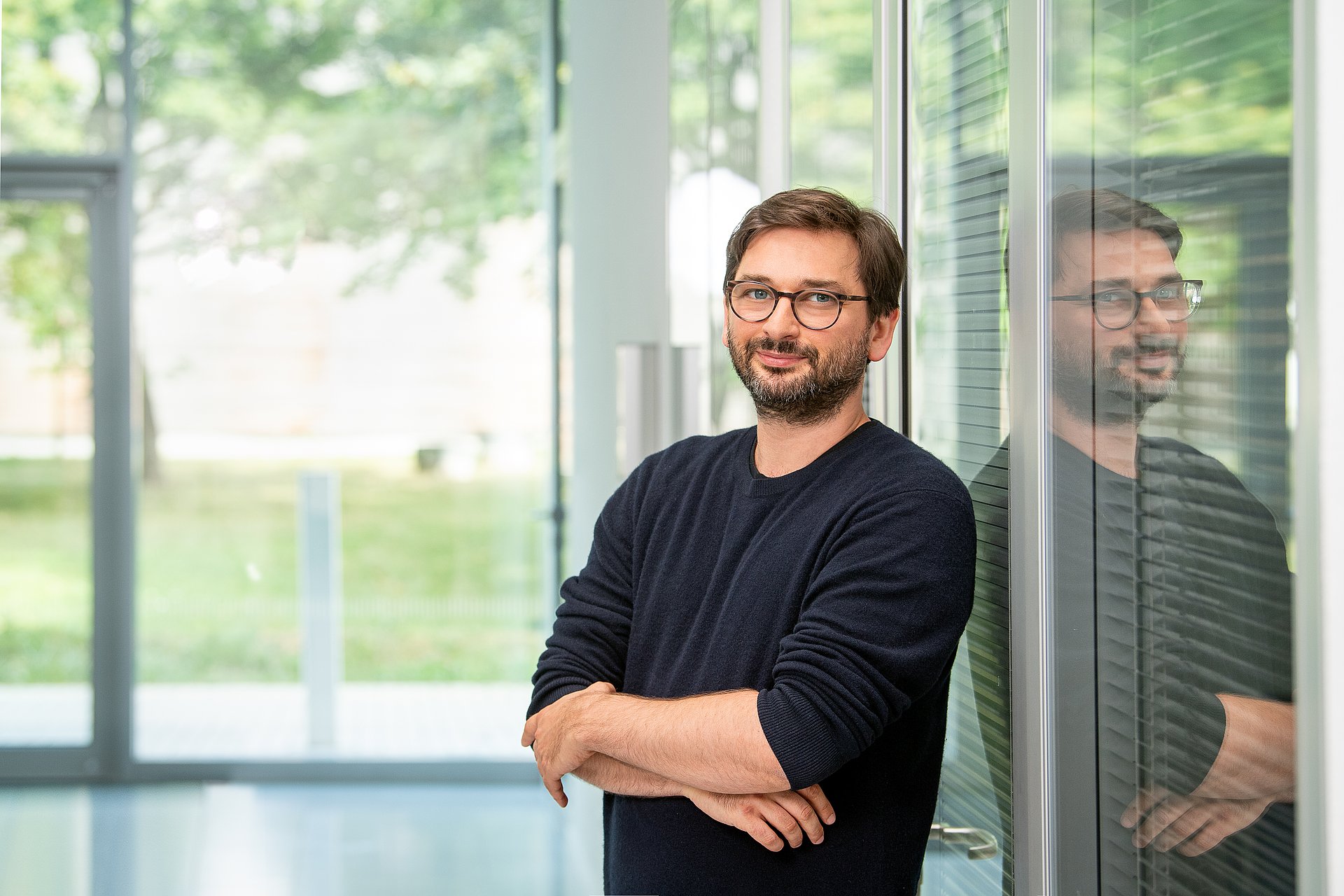What moves our newly appointed professors? What fields does their research impact and what are they particularly looking forward to at TUM? You'll find out about all that and more in our "NewIn" series. In the this episode we meet Lukas Heinrich. As Professor for Data Science in Physics he develops methods which help discover new elementary particles based on enormous amounts of data.
Display external content
At this point content of an external provider (source: www.xyz.de) is integrated. When displaying, data may be transferred to third parties or cookies may be stored, therefore your consent is required.
You can find more information and the possibility to revoke your consent at www.tum.de/datenschutz.
I agree
You search for new elementary particles. Have you already found any?
One remarkable success was of course the discovery of the Higgs Boson, the theoretical prediction of which won François Englert and Peter Higgs the Nobel Prize. Back then I was part of the research groups at CERN who were involved in proving the existing of the particle.
Have you always been interested in physics?
My father was a biophysicist, so I was already exposed to physics at an early stage. I'm fascinated by the fundamental mechanisms which hold the world together. There are two disciplines which investigate the topic: One is astrophysics, concerned with the large-scale structure of for example the galaxies, and particle physics, which is concerned with the smallest building blocks. I decided in favor of particle physics.
Basic research often makes its way into our everyday lives
Prof. Lukas Heinrich
What exactly is your work like?
We accelerate elementary particles and collide them with one another. We learn about the building blocks that make up the material by observing these collisions. At CERN we operate the world's largest particle accelerator, the Large Hadron Collider. In order to measure the collisions we've built a number of highly complex detectors, with a size on the order of a 5-story building. There are four of these detectors; I myself work with the ATLAS detector. This instrument generates approximately 100 terabytes of data per second. My work focuses on developing algorithms that make it possible to handle this flood of data. New methods in the field of Artificial Intelligence are of particular importance here.
 Astrid Eckert / TUM
Astrid Eckert / TUM What objectives do you pursue in your work here at TUM?
I'm still a member of the international ATLAS collaboration at CERN, but there are also several new assignments. Most of all I'm looking forward to my teaching duties and the interaction with young scientists. Since particle physics isn't the only field that has to work with very large data sets, I also coordinate the "ORIGINS Data Science Lab" in the Excellence Cluster ORIGINS. The Lab's objective is to optimally link basic research in astrophysics, particle physics and biophysics. In the era of AI, the central question is: How much can we leave up to the algorithms, and how much physics will the researchers have to contribute?
How relevant is the search for elementary particles to society?
Basic research often makes its way into our everyday lives. One good example of this is GPS technology, actually an application of Relativity theory. And new technologies that are developed for research projects are frequently used later by the public at large. An impressive example is the World Wide Web, which was originally developed to let scientists exchange data with one another.
And there's another aspect. The Higgs particle has a certain mass. And the only reason that atomic nuclei can exist at all is because of this mass. If there were no atomic nuclei, there would also be no humans. Another big question you can ask yourself is why this particle has exactly that mass which makes life possible. This is of course a very philosophical question, since we're only able to ask the question because we exist.
- About Lukas Heinrich: After completing his studies at Humboldt University, Lukas Heinrich earned his doctorate at New York University and then conducted research at the CERN research center. Since March of this year he has been Professor for Data Science in Physics at the Technical University of Munich. His new role at TUM also includes coordination of the ORIGINS Data Science Lab.
- The Excellence Cluster "ORIGINS" researches the development of the universe, from the Big Bang to the appearance of life. Researchers in astrophysics, biophysics and particle physics work together for example to search for the connection between the formation of planets and the origins of the first prebiotic molecules.
- Based in Geneva CERN, the European Organization for Nuclear Research (Conseil Européen pour la Recherche Nucléaire), is one of the world's largest centers for basic physical research.






